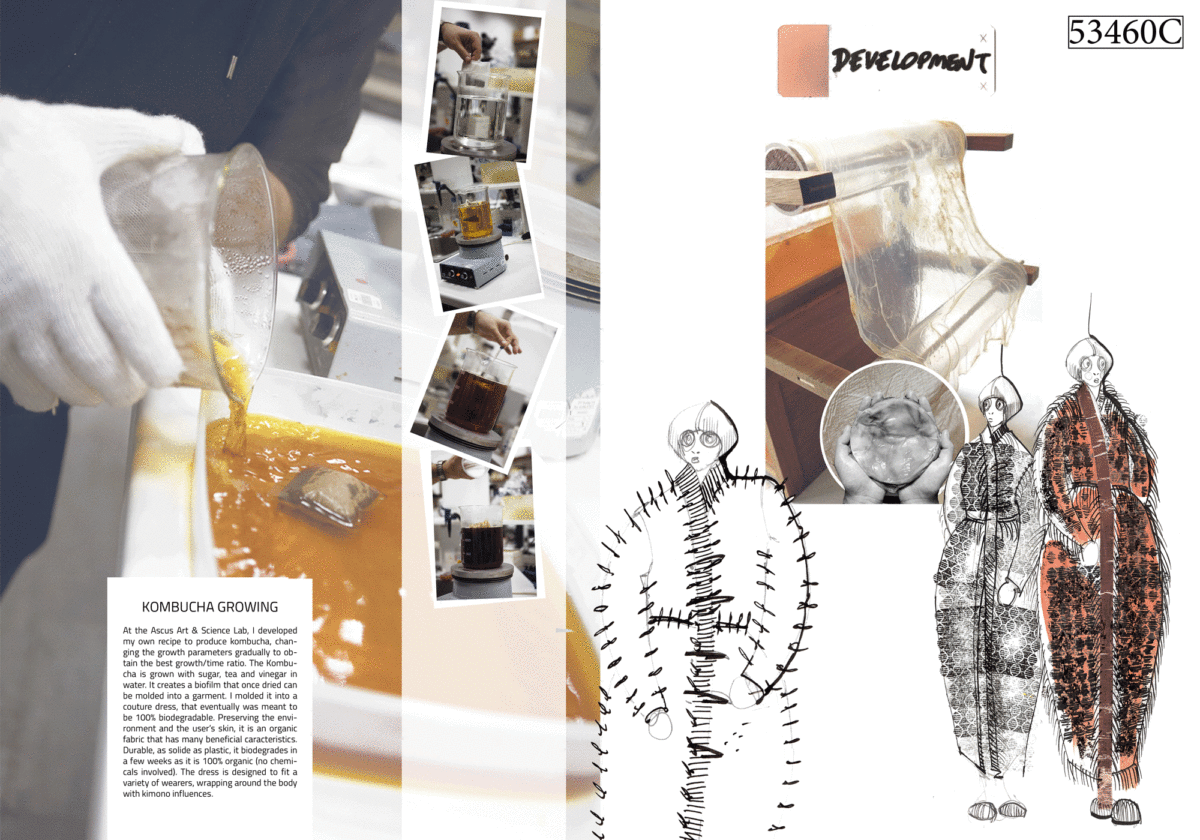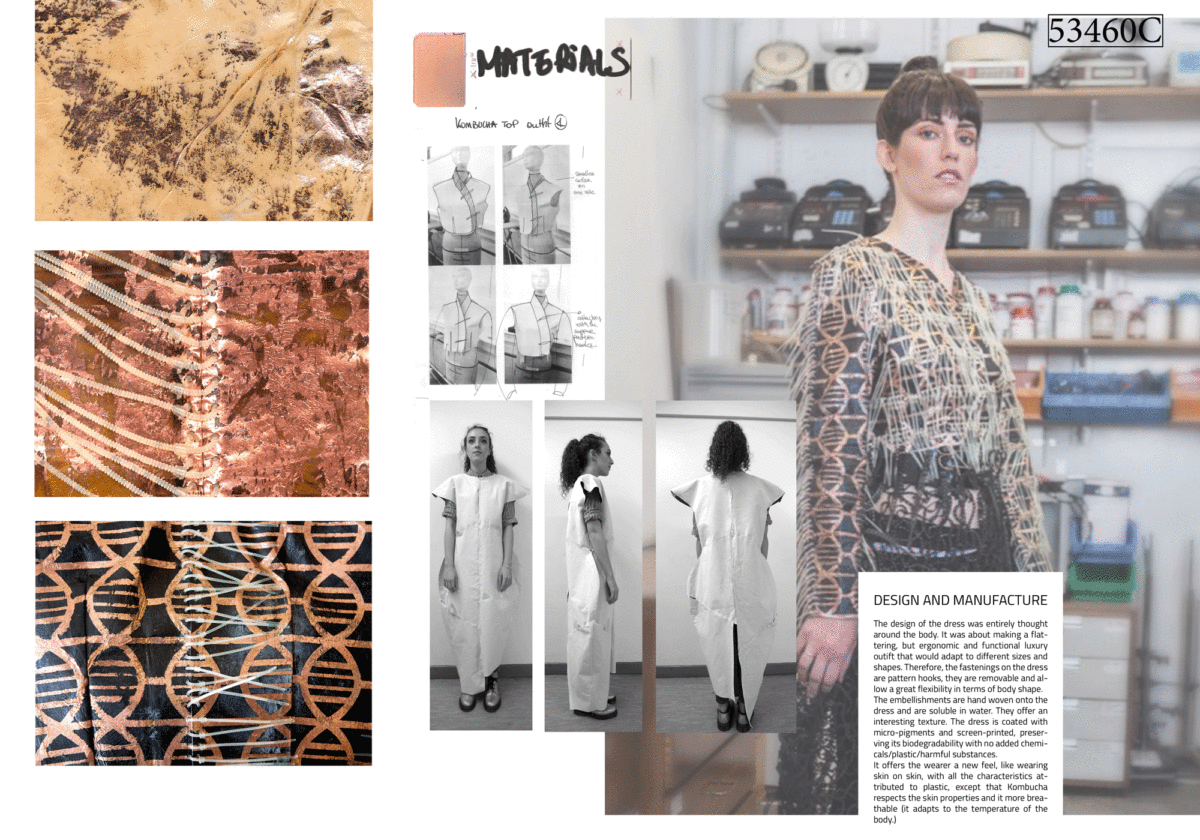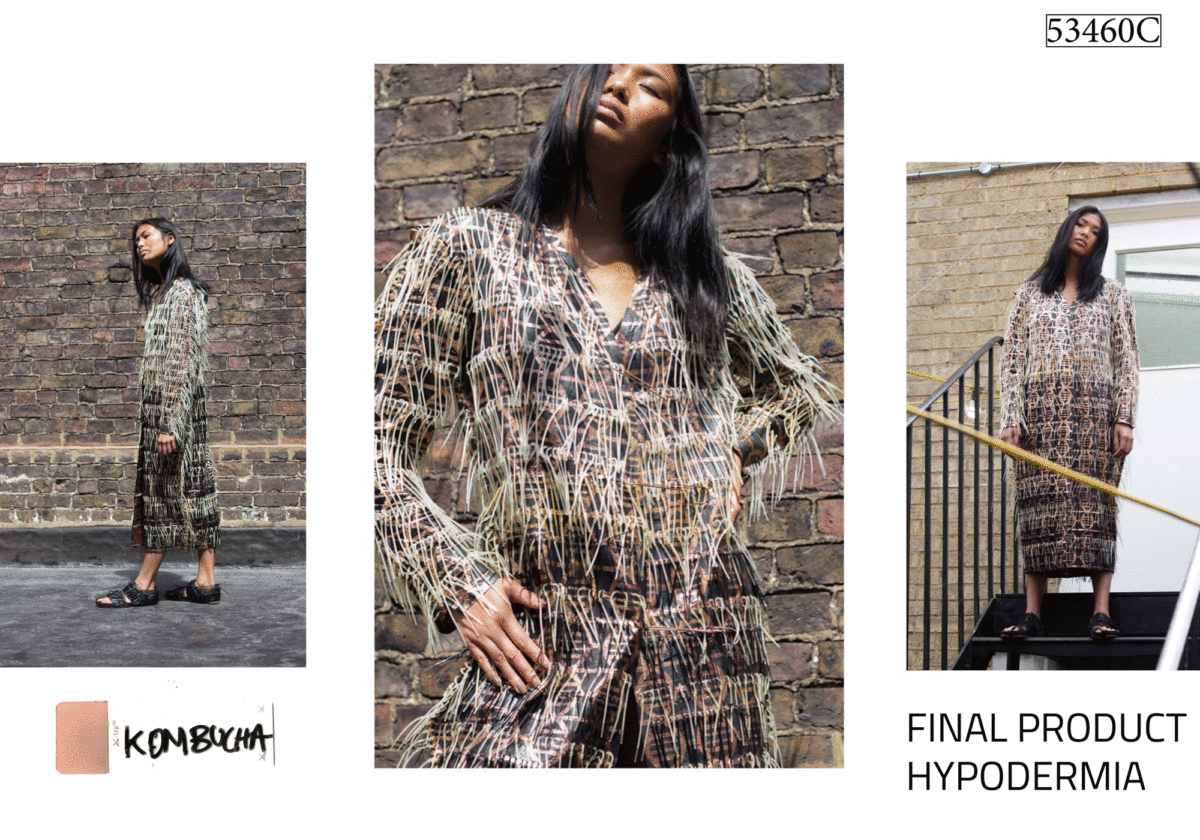RESHAPE18 | sensing materialities
wearable technology category
Hypodermia
Designer: Aurélie Fontan
Model : Gea McMullen
Photographer : Claire McIntyre
Assistant : Eoin McEvoy

Hypodermia is the capsule project part of my Graduate Collection. I have always had a deep interest in biology and when I started my final year of Bachelor, I decided to grow my own dress. This idea emerged from the work I had previously conducted at the ASCUS Art & Science Lab, a public access laboratory in Edinburgh, UK. There, I became really interested in micro-organisms and how they can be implemented in the human design.
This dress stands out in my collection as a separate project, as it is the only bio-fabricate piece, and therefore I would like to submit it to your competition.
Sustainability in fashion often reaches a point where you have to compromise (in terms of costs, production, aesthetic, etc…). Moreover, most sustainable designs (with an aspect of biodegradability) still struggle nowadays to reach a luxury level with durability and functionality. I wanted to show that a 100% biodegradable, compostable and somewhat hypoallergenic dress, with a couture look, is not such a far-fetch concept.
I was greatly inspired by Suzanne Lee’s BioCouture Kombucha collection but tried to go further, in terms of aesthetic, durability and coating.
I started growing the Kombucha in August 2017. Kombucha is originally brewed to make pro-biotic drinks as the combination or yeasts and bacterias reacts with a mix of water, tea, sugar and vinegar. This synthetic organism needs a lukewarm environment to thrive, with
oxygen and no light. Therefore I had no other choice than to grow it under my bed, in large boxes.
I grew large sheets every two weeks, testing in parallel my recipes at Ascus Lab, and recycling the water all the way. After drying, the sheets were stored for coating. I had to match a DNA double helix pattern, underpinning my whole collection, to the Kombucha, in the most sustainable way.

The Kombucha is a delicate fabric that does not sustain high temperatures once dried, so sublimation printing did not work. I finally invented my own coating method (plastic-free) with copper-coloured micro-pigments. They represent a great alternative to the traditional vinyl and plastic-based fabric coatings because they can biodegrade with the fabric, being so microscopic.
The next step was screen-printing the negative pattern in black. Eventually, I wanted to add some durability to the fabric. Indeed, Kombucha is not waterproof and is very sensitive to temperature and humidity (which could provoke the growth of micro-organisms). Therefore, I researched PVA glues, that would allow me to fix the pattern and the fabric. I used a solvent-free, least harmful PVA. PVA is also considered as biodegradable, it is also
washable before composting. The dress is embellished with water-soluble cable ties, that would help with the composting (design for disassembly method).
Because it does not include latex, silicone, plastic, any type of dye and is from the organic origin, this dress has inherent properties that would lower the risk of skin allergies.
Provided with enough surface, the kombucha is grown easily with the right temperature and conditions. The ingredients necessary to its growth are inexpensive and it could eventually be thought within a closed-loop system where the water is recycled and re-used. The micro- pigments, as well as the PVA and screen-printing ink, are also cost. The product is easily manufactured with the help of screen-printing facilities and does not necessitate any other specific material.


